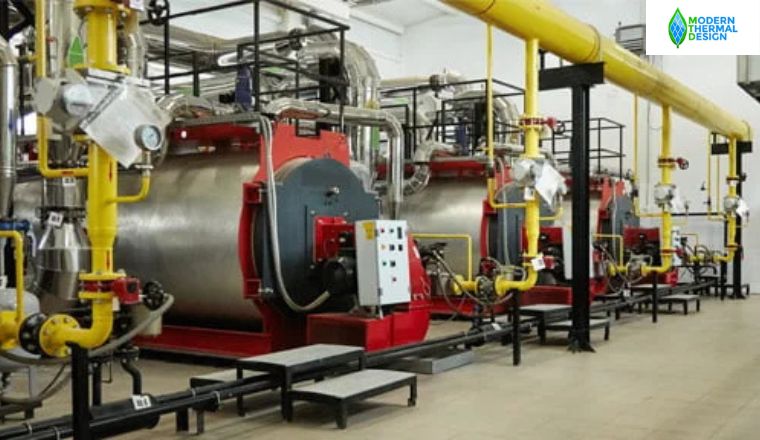As the energy demand escalated, the demand for energy-generating factories and steps has accelerated at the same pace. In this rapidly evolving energy landscape, industries are under immense pressure to balance performance with sustainability. Steam power generation remains a cornerstone of industrial and utility operations, but traditional systems often face challenges like energy losses, high fuel consumption, and significant emissions. This is where high-efficiency gas boilers emerge as a transformative solution for these high-demand supply needs. By integrating advanced boiler technology into steam power generation, plants can significantly improve efficiency, lower operating costs, and reduce environmental impact.
Boosting Energy Efficiency
High-efficiency gas boilers are designed to optimize fuel usage, to make sure that maximum heat is extracted from every unit of gas consumed. Unlike conventional boilers, which lose a considerable amount of energy through flue gases, modern boilers use advanced heat exchangers and condensing technology to capture and reuse this otherwise wasted energy. In steam power generation systems, this translates into higher thermal efficiency, reduced fuel costs, and a more reliable supply of steam for turbines and other applications.
Reducing Carbon Footprint
Sustainability is a growing priority across industries, and high efficiency gas boilers play a critical role in supporting cleaner steam power generation. By consuming less fuel and producing fewer emissions, they significantly reduce greenhouse gases such as carbon dioxide (CO₂) and nitrogen oxides (NOx). Along with this, these boilers often support integration with renewable energy systems and low-carbon fuels, helping organizations transition toward greener operations while still meeting high energy demands.
Reducing the Cost of operations
Beyond energy efficiency, high-efficiency gas boilers contribute to cost savings in multiple ways. Reduced fuel consumption directly lowers energy bills, while advanced design features minimize maintenance requirements and extend equipment lifespan. For industries relying on continuous steam production, fewer breakdowns and greater reliability are invaluable. Over time, the investment in high-efficiency boilers proves financially rewarding, offering strong returns while also supporting operational stability.
Supporting Flexible and Scalable Power Generation
One of the standout advantages of high-efficiency gas boilers is their adaptability. They can be scaled to meet the varying demands of steam power generation systems, from small industrial plants to large-scale utilities. Their ability to quickly adjust to fluctuating load requirements makes them particularly valuable in modern energy grids, where flexibility is essential. This scalability ensures that industries can maintain consistent performance while accommodating growth and evolving energy needs.
Driving Innovation in Steam Systems
Modern high-efficiency gas boilers are often equipped with intelligent controls, automation, and real-time monitoring systems. These innovations allow operators to optimize combustion, track efficiency, and predict maintenance needs. In steam power generation, this level of digital integration improves performance management, reduces downtime, and make sure to be in accordance with the stringent environmental regulations.
Conclusion
High-efficiency gas boilers are more than just an upgrade—they are a strategic enabler of modern, sustainable, and cost-effective steam power generation. By enhancing energy efficiency, reducing emissions, lowering operational costs, and offering scalability, they provide industries with a holistic solution that aligns with both economic and environmental goals. As the demand for clean, efficient energy continues to rise, high-efficiency gas boilers will remain at the forefront of innovations shaping the future of steam power systems.
 WhatsApp Us Now
WhatsApp Us Now







